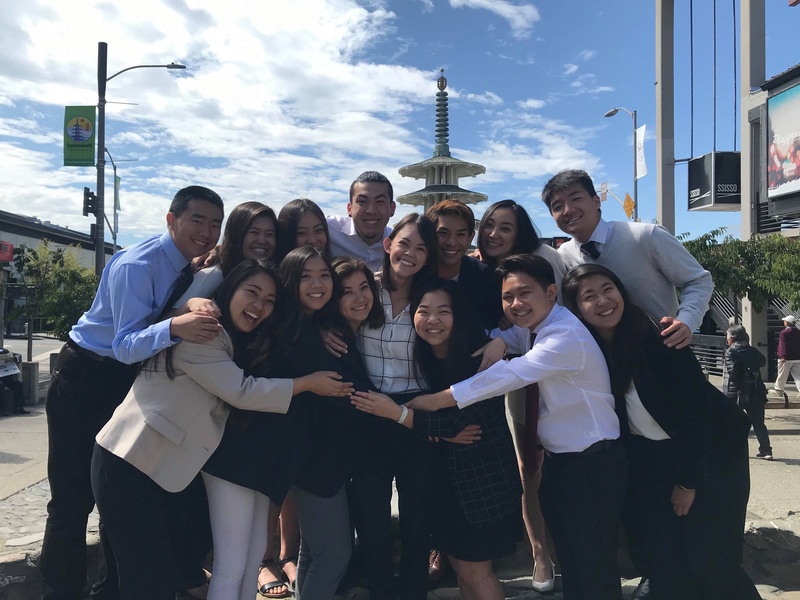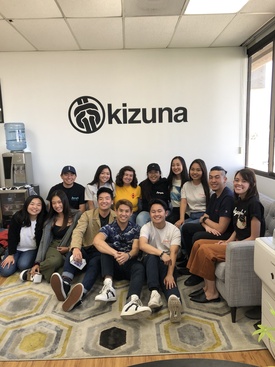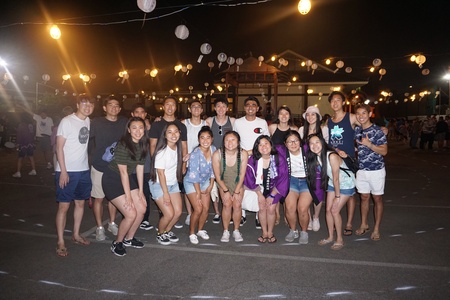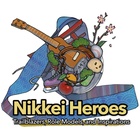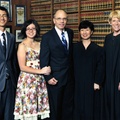Being of only Japanese ancestry and growing up in the South Bay (Torrance) I have never questioned whether or not I belonged to the Japanese American community. My generational identity is that I am Yonsei (fraternal) and Shin-Nisei (maternal), which put me in situations where I am more “Japanese” than my Yonsei friends, but not “Japanese” enough to really be a Nisei.
The social outlets that I found myself participating in within the JA community was playing basketball, doing Girl Scouts, and dancing hula. Although I do not practice Buddhism, a family summer tradition has always been to go to at least one Obon festival. So to say the least, yes I did grow up as a stereotypical JA girl from the South Bay. Further exposure to my JA background came from joining the Nikkei Student Union at UC Riverside, where I discovered more about the larger Nikkei diaspora.
For most of my life I never realized how fortunate I have been to grow up in an environment that allowed me to feel comfortable being Japanese American with a mixture of generational background, and no strong religious ties.
The thought of “where in this world” would I be without my identity within today’s Japanese American community has never crossed my mind until this summer. This summer I have had the fortunate opportunity to be an intern with the Japanese American National Museum (JANM) and Japanese American Bar Association (JABA) through Kizuna’s Nikkei Community Internship (NCI) program. It was through this opportunity that I have been able to deepen my understanding of the dedication and effort of those who have made their life’s work to better the JA community that I have been fortunate enough to be born and raised in.
At the turn of the century there was a concern from the (postwar WWII) builders of the JA community that the community was going to no longer be in existence moving into the 21st century. In the late 60’s the discipline of Asian American studies was implemented at different public universities in California giving future generations an opportunity to learn about Asian American history and place in America’s society. Through the 70’s and 80’s there were large movements being made within the Japanese and Asian American communities, such as the Asian American movement and the Civil Liberties Act of 1988.
Without the inspiration from many strong leaders and activists in the JA community composing the Declaration of the Nikkei Community and taking charge of other community efforts, who knows where the community would have been currently… or if it still would have been around at all. The efforts of the pioneers in the Japanese American community and culture have led me to find a sense of belonging. Considering the Declaration of the Nikkei Community was written four months before I was born, I have been so fortunate to only know this ongoing, thriving, but also constantly fighting Japanese American community. Advancements within the JA community has not been the only reason for the survival of this community, but also the preservation of Japanese American history and culture.
Never has the idea of not having a Japanese American community in the LA area ever crossed my mind. To this day, the physical spaces are not the only part of the Japanese American community being preserved, but also its culture and values; and these elements are what truly comprise today’s JA community that so many of us know and love.
There are many Nikkei heroes that have dedicated their lives to their respective communities and larger Nikkei diaspora. Working in Little Tokyo this summer allowed me the opportunity to meet many individuals who have truly helped create the Japanese American community what it is today. Many of these pioneers and trailblazers of LA’s JA community still work at various non-profit organizations throughout Little Tokyo. These community leaders and organizers are present in the community and have created countless programs, organizations, and facilities for the Japanese American community and beyond to utilize for personal and community goals. Although these Nikkei heroes, that do so much for the Japanese American community, do not enjoy being in the limelight I have truly developed an appreciation for their dedication and drive to develop a place where I, and so many others, can feel “at home”.
Heroic Nikkeis are not just present in Little Tokyo or at non-profits in the hearts of JA communities, but who are also paving the way for future JAs, and minorities to come in their respective fields. Working with the members (and non-members) of JABA has given me exposure to many successful JA attorneys and judges who are pioneers at some of their respective firms and beyond.
Notably, I had the opportunity to chat with and interview Judge Holly Fujie. During that time I got to hear about her experience of being the first Asian American President of the State Bar of California. Judge Fujie has been honored as a trailblazer and pioneering JA/Asian American woman especially in the law community. Beyond that Judge Fujie, along with many other successful JA judges and attorneys, have also balanced being wonderful mothers/parents and community members as well. Being a successful professional, community member and parent does not have to be a choice that one has to make.
Interacting with all of these successful professionals and family members of JABA, and other community organizations, has been truly inspiring for me. Creating a work-life balance is frequently a concern for women, but when getting to see these great role models within the JA community be successful, it allows me to imagine what some of the possibilities are for my future.
Leaders in the community during the late 90’s realized that there is a concern with the younger generations not being aware of the history and issues pertaining to Japanese Americans. Thus, programs like NCI, and later Kizuna, were founded to preserve JA culture and community through the younger generations. Exposing youth to community work had not been a major concern prior to the Declaration of the Nikkei Community. Had there not been a focus on rebuilding and promoting the JA community in the younger generations, there may not have been opportunities to revive and sustain a community that previous generations worked so hard to create. There has been an impressive balance and collaboration between pioneers and preservers in the JA community that has not only allowed organizations to form based off of cultural values and ties, but to also allow space to grow and become even more inclusive to surrounding communities.
Programs like the Nikkei Community Internship (NCI) has allowed for college-aged students to learn more about themselves professionally and personally, as well as learn about the Japanese American community and the people who compile it. While going through the NCI program and witnessing the fruits of these community members’ labor I cannot thank these pioneers and preservers enough for giving this generation the opportunity to continue a community that is so unique, supportive, and tight-knit.
Although the community has not reached all of its goals and potential, the JA community has been working diligently to use the JA experience to help other minority communities find their voices. The gratitude that I have toward these community builders, preservers, and trailblazers are the reasons why I have chosen these community members as my Nikkei Heroes.
*This is one of the projects completed by The Nikkei Community Internship (NCI) Program intern each summer, which the Japanese American Bar Association and the Japanese American National Museum have co-hosted.
© 2019 Kayla Tanaka


